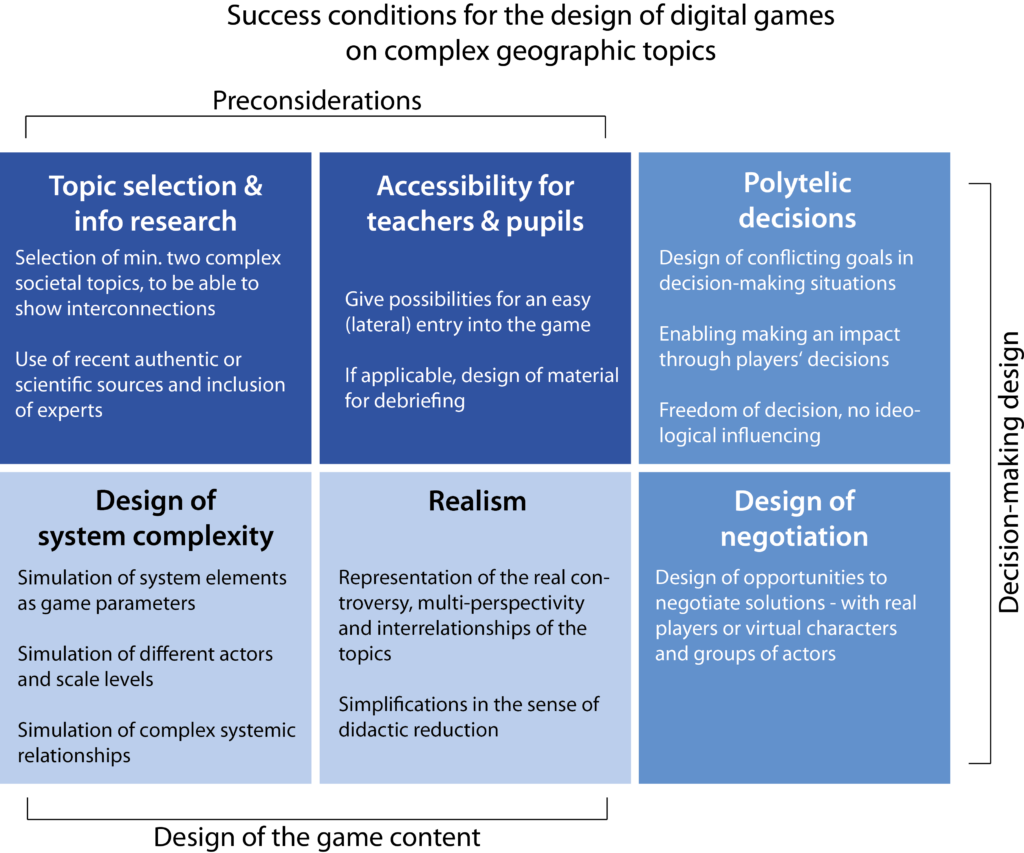For Designers

Model for Success Condition and Guidelines for the design of (educational) digital games on complex societal issues.
Model on the success conditions for the design of games on complex societal issues
Lux, Joelle-Denise; Budke, Alexandra; Czauderna, André; Guardiola, Emmanuel
Based on our research (See our Publications), we developed this model on the conditions for successful design of games (particularly strategy games) for geography education, especially concerning complex social issues such as climate change, migration, urban development or sustainable resource use. In the preparatory phase of game development, the conditions for success include the steps of topic selection and research, as well as considerations of accessibility for teachers and students. Regarding game content, the focus is on the design of geographic system complexity and a realistic depiction of the controversy and interconnectedness of the topics. A successful game design for geographical games also includes the design of conflicting goals in decision-making situations and opportunities to negotiate solutions. Thus, the model summarizes our guide to designing games on complex geographic topics – detailed information on the individual steps can be found in the guidelines.
Topic selection & info research: see sections 1 and 3 in the guidelines
Accessibility for teachers & pupils: see section 2 in the guidelines
Polytelic decisions: see sections 5, 6, 8 and 9 in the guidelines
Design of negotiation: see section 10 in the guidelines
Design of system complexity: see section 7 in the guidelines

Fig. 1: Model on the success conditions for the design of games on complex societal issues (Lux et al., 2021)